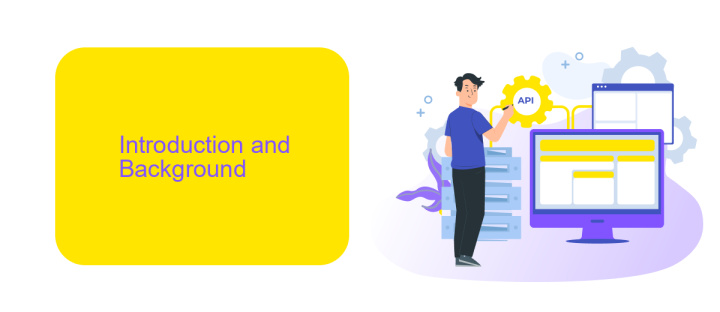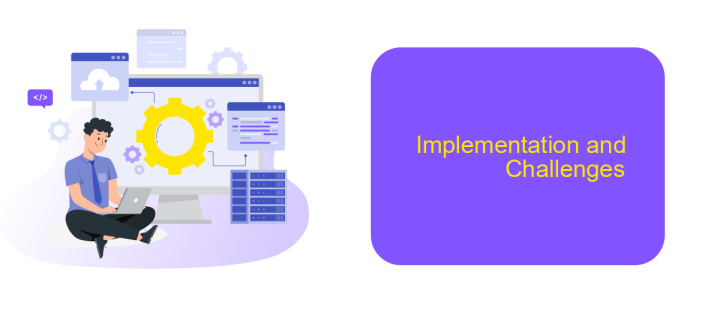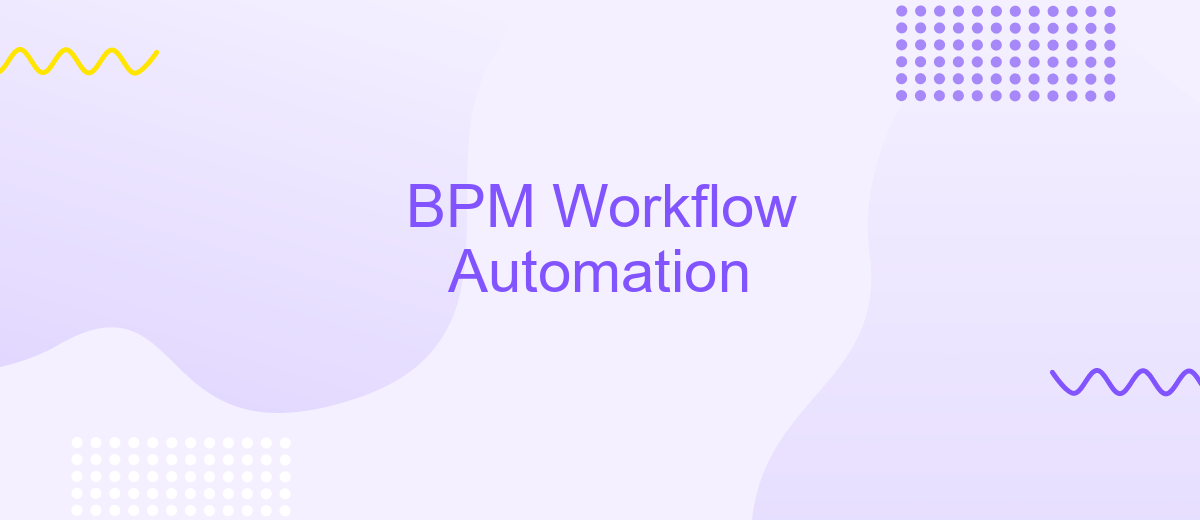BPM Workflow Automation
Business Process Management (BPM) workflow automation is revolutionizing the way organizations operate by streamlining processes and enhancing efficiency. By automating repetitive tasks and integrating various systems, BPM workflow automation not only reduces human error but also accelerates decision-making. This article explores the key benefits, implementation strategies, and real-world applications of BPM workflow automation in today's dynamic business landscape.
BPM Workflow Automation
BPM Workflow Automation is a method that leverages technology to streamline and optimize business processes. By automating repetitive tasks, businesses can focus on more strategic activities, enhancing overall efficiency and productivity. One of the key benefits of BPM Workflow Automation is its ability to reduce human error and ensure consistency in task execution.
- Improved efficiency through automation of repetitive tasks
- Enhanced accuracy and reduced human error
- Better compliance with regulatory standards
- Increased visibility and control over processes
Integrating various systems and applications is crucial for effective BPM Workflow Automation. Tools like ApiX-Drive facilitate these integrations by connecting disparate systems, enabling seamless data flow and communication. This ensures that all parts of the workflow are synchronized, further enhancing the efficiency and effectiveness of the automated processes.
Introduction and Background

Business Process Management (BPM) Workflow Automation has revolutionized the way organizations streamline their operations. By automating repetitive tasks and enabling seamless integration between various systems, BPM Workflow Automation enhances efficiency and reduces human error. This technological advancement allows businesses to focus on strategic initiatives rather than getting bogged down by routine processes, ultimately leading to improved productivity and cost savings.
One of the key components of BPM Workflow Automation is the ability to integrate different software applications and services effortlessly. Tools like ApiX-Drive play a crucial role in this context by providing a user-friendly platform for setting up integrations without requiring extensive coding knowledge. ApiX-Drive allows businesses to connect various applications, ensuring data flows smoothly across systems, thereby optimizing workflow and enhancing overall operational efficiency. This integration capability is essential for businesses looking to stay competitive in a fast-paced digital landscape.
Benefits and Advantages

BPM Workflow Automation offers numerous benefits that can significantly enhance business processes. By automating repetitive tasks and streamlining workflows, organizations can achieve higher efficiency and productivity. This leads to reduced operational costs and allows employees to focus on more strategic activities.
1. **Increased Efficiency**: Automation minimizes human errors and accelerates task completion, ensuring consistent and reliable results.
2. **Cost Reduction**: By automating workflows, businesses can lower labor costs and reduce the need for manual intervention.
3. **Improved Compliance**: Automated workflows ensure that all processes adhere to regulatory standards, minimizing the risk of non-compliance.
4. **Enhanced Collaboration**: Tools like ApiX-Drive facilitate seamless integration between various applications, enabling smooth data flow and better team collaboration.
5. **Scalability**: Automated systems can easily scale to accommodate growing business needs without significant additional investment.
Implementing BPM Workflow Automation not only optimizes existing processes but also provides a scalable foundation for future growth. By leveraging services like ApiX-Drive, businesses can integrate various applications effortlessly, further enhancing workflow efficiency and collaboration. This holistic approach to automation ensures long-term sustainability and competitive advantage in the market.
Implementation and Challenges

Implementing BPM workflow automation involves several critical steps, beginning with a thorough analysis of existing processes. This analysis helps identify inefficiencies and areas for improvement. Once the analysis is complete, the next step is to design and model the new automated workflows, ensuring they align with business objectives and compliance requirements.
One of the primary challenges in BPM workflow automation is integrating various systems and applications. Tools like ApiX-Drive can simplify this process by providing a platform for seamless integration, reducing the need for extensive coding and manual intervention. Another challenge is ensuring data consistency and accuracy across different platforms, which requires robust data validation and synchronization mechanisms.
- System integration complexity
- Data consistency and accuracy
- Employee resistance to change
- Ongoing maintenance and updates
Overcoming these challenges requires a strategic approach, including comprehensive training programs for employees and ongoing support to address any issues that arise. Additionally, leveraging integration platforms like ApiX-Drive can significantly streamline the implementation process, ensuring a smoother transition to automated workflows.
- Automate the work of an online store or landing
- Empower through integration
- Don't spend money on programmers and integrators
- Save time by automating routine tasks
Future Trends and Outlook
The future of BPM workflow automation is set to be driven by advancements in artificial intelligence (AI) and machine learning (ML). These technologies will enable more sophisticated data analysis, prediction, and decision-making processes, making workflows more efficient and adaptive. Additionally, the integration of AI and ML will facilitate the automation of complex tasks that previously required human intervention, thus significantly reducing operational costs and improving accuracy.
Another significant trend is the growing importance of seamless integration between various software and services. Platforms like ApiX-Drive are becoming essential as they simplify the process of connecting different applications, allowing businesses to automate workflows without extensive coding knowledge. This trend towards low-code and no-code solutions will democratize automation, making it accessible to a broader range of businesses, from startups to large enterprises. As these technologies evolve, we can expect even more innovative features that will further streamline business processes and enhance productivity.
FAQ
What is BPM Workflow Automation?
What are the benefits of implementing BPM Workflow Automation?
How do I get started with BPM Workflow Automation?
Can BPM Workflow Automation integrate with existing systems?
What is ApiX-Drive and how can it help with BPM Workflow Automation?
Time is the most valuable resource in today's business realities. By eliminating the routine from work processes, you will get more opportunities to implement the most daring plans and ideas. Choose – you can continue to waste time, money and nerves on inefficient solutions, or you can use ApiX-Drive, automating work processes and achieving results with minimal investment of money, effort and human resources.


